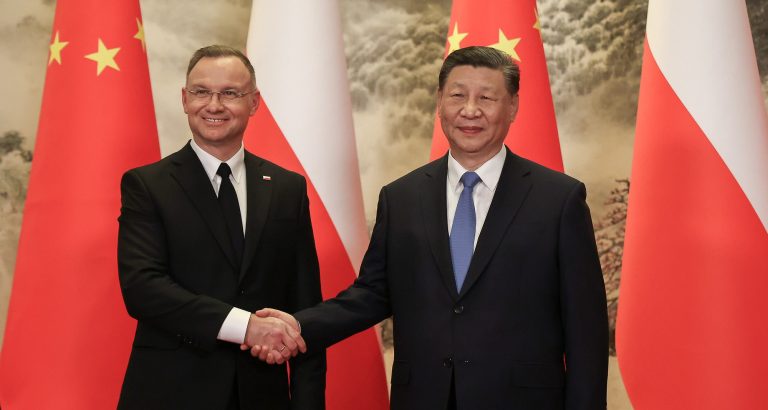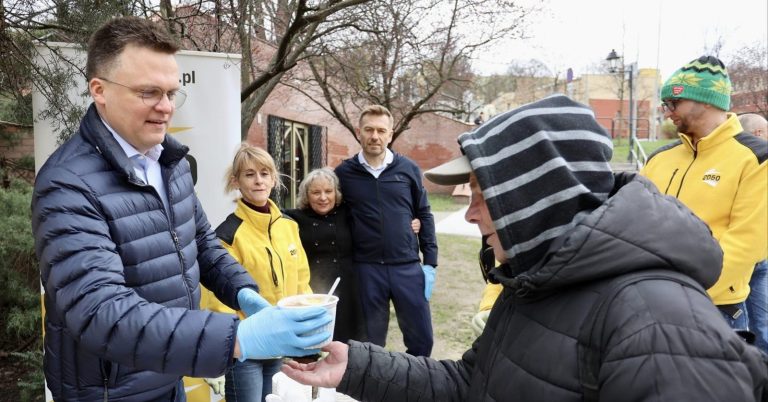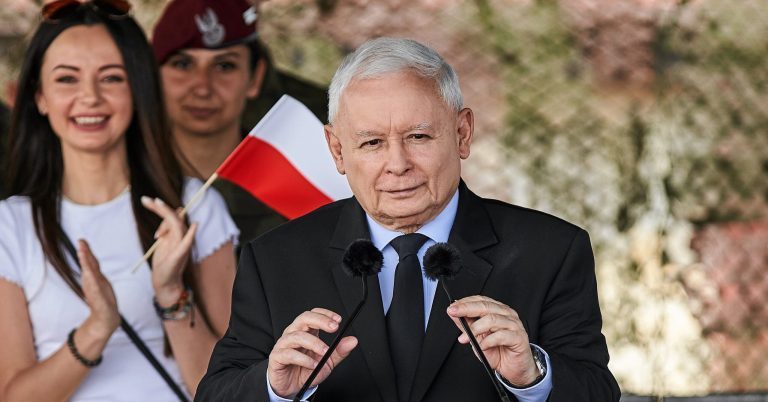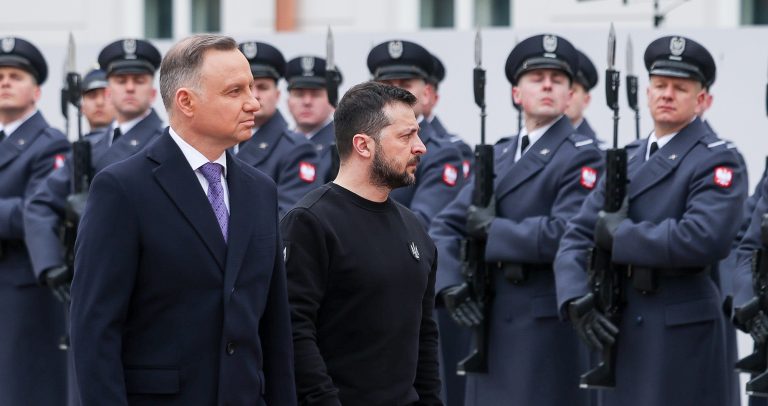What do the European Parliament election results tell us about Polish politics?
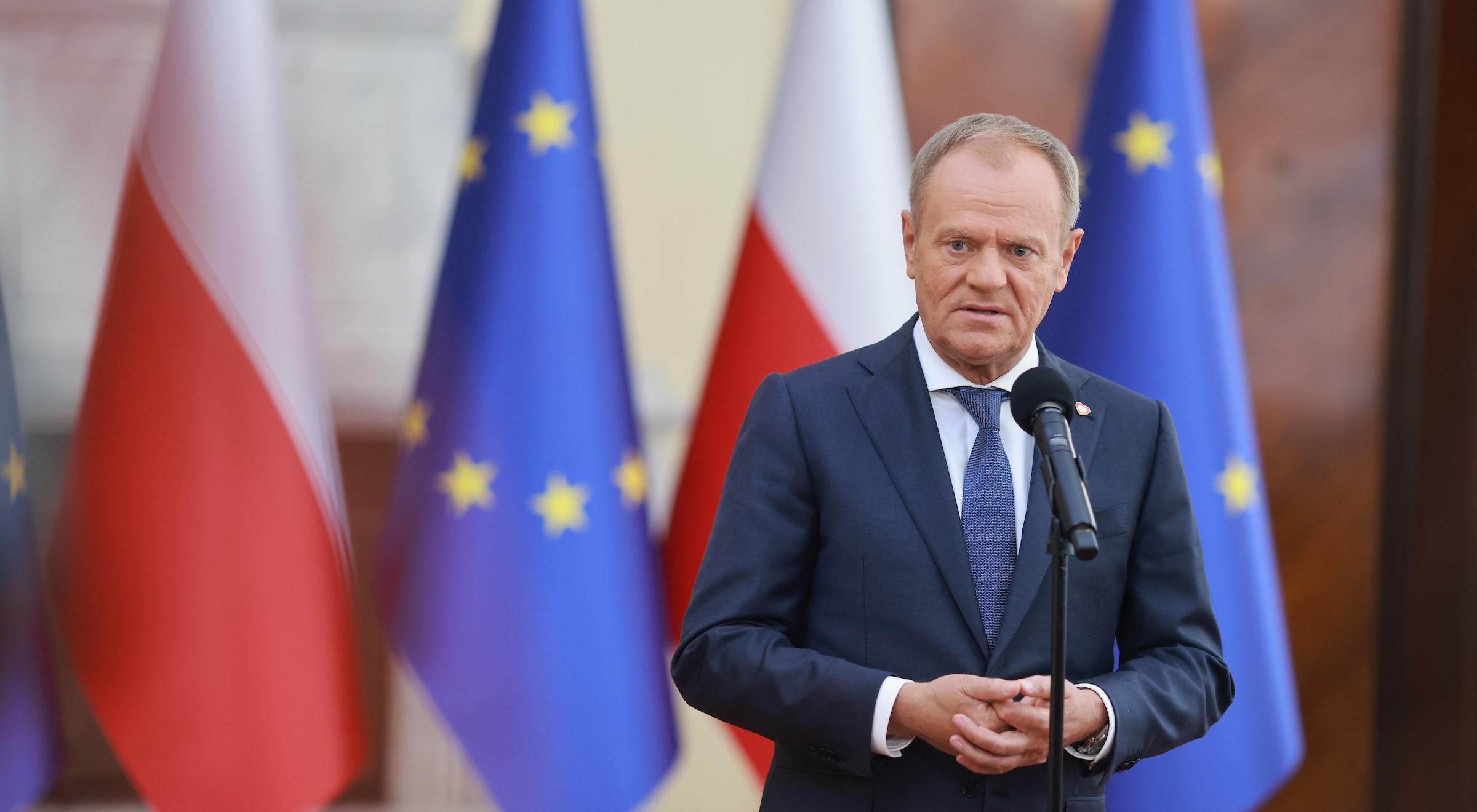
Although the liberal-centrist ruling party solidified its position, its margin of victory over the right-wing opposition was tiny and achieved largely at the expense of its governing partners. While the opposition has kept itself in the political game, it is still grappling with bitter internal conflicts and lacks a convincing strategy to construct a winning coalition.
Civic Platform tops the poll
On 9 June, Poles voted in the European Parliament (EP) election, the latest instalment in the country’s electoral marathon that began with last October’s parliamentary poll, continued through April’s local elections and will culminate in next summer’s crucial presidential poll.
Last December, a new coalition government led by Donald Tusk, who had served as Polish prime minister between 2007-14 and then European Council President from 2014-19, was sworn in, ending the eight-year rule of the right-wing Law and Justice (PiS) party.
Tusk is leader of the liberal-centrist Civic Platform (PO), which once again became the country’s main governing party.
The new coalition also includes the eclectic Third Way (Trzecia Droga) alliance – which comprises the agrarian-centrist Polish People’s Party (PSL) and the liberal-centrist Poland 2050 (Polska 2050) grouping formed to capitalise on TV personality-turned-politician Szymon Hołownia’s strong third place in the 2020 presidential election – and the smaller New Left (Nowa Lewica) party, the main component of a broader Left (Lewica) electoral alliance.
The election was largely framed as a test of strength between the two main parties. PO came in first with 37.1% of the votes, finishing narrowly ahead of PiS on 36.2%. This was the first election since 2014 in which PO has come out top, ending a decade during which PiS or its candidate won the most votes in consecutive local, presidential, parliamentary, and European polls.
Official results from the European elections in Poland show a narrow win for @donaldtusk’s centrist KO (37%) over the national-conservative PiS (36%).
The far-right Confederation (12%) took third and warned „Ursula @vonderleyen, we’re coming for you” https://t.co/zjYLtNNlZ9
— Notes from Poland 🇵🇱 (@notesfrompoland) June 10, 2024
Tusk’s party was desperate to secure even the most minimal of victories after failing to knock PiS off the top spot in the local elections, when the latter defied predictions and secured the largest share of the vote in the regional assembly polls, the key barometer of national party support.
Polarisation around national security
The conclusion that PO drew from the local elections was that it underperformed because of low turnout among its core supporters and, knowing that this could fall again in the EP poll, needed to concentrate on mobilising its electoral base.
As a consequence, it tried to polarise the election around a clear and simple message that tapped into voters’ emotions and fears. To achieve this goal, as its main campaign theme PO focused on the need to protect Polish national security against the aggressive actions of the Russian and Belarussian security services.
It tried to present PiS as a party that only pretended to be anti-Russian but had in practice operated in accordance with Moscow’s interests for many years.
PM @donaldtusk has established a commission to investigate Russian influence in Poland.
But opposition leader Jarosław Kaczyński claims it is Tusk himself who has previously „cooperated with Russia against Poland” and should be the „main suspect” https://t.co/yEatUDor3v
— Notes from Poland 🇵🇱 (@notesfrompoland) May 22, 2024
PO thereby framed the election as a straight choice between East and West, arguing that PiS had developed dangerous links with other European, Kremlin-sympathetic right-wing parties that undermined the unity of the EU and the continent’s security architecture.
It also pledged to further strengthen fortifications along Poland’s eastern border where there was a long-running migration crisis orchestrated by Belarus and Russia as part of efforts to de-stabilise the region. This led to charges of hypocrisy from PiS, who accused PO of itself having served Russian interests when it was in office and being lukewarm about the border wall when the previous government began its construction.
Tusk invested a huge amount of political capital into the campaign and largely succeeded in ensuring that national security became the dominant issue. PO’s narrative almost came unstuck in the final week of campaigning which was dominated by the death of a 21-year-old Polish soldier who was stabbed by a migrant while guarding the Polish-Belarussian border.
Reports also emerged that the state prosecutor’s office had earlier arrested soldiers who allegedly fired warning shots towards migrants. However, Tusk skilfully shifted media attention on to defence minister and PSL leader Władysław Kosiniak-Kamysz; indeed, some commentators suspected Civic Platform had leaked the story about the arrested border guards as a way of deliberately weakening its coalition partner.
Politicians from both the government and opposition have reacted angrily after news emerged that three soldiers were detained by military police for firing warning shots at a group of migrants trying to force their way across the border from Belarus https://t.co/wD3iPcPWFL
— Notes from Poland 🇵🇱 (@notesfrompoland) June 6, 2024
Should PO have performed better?
In fact, although PO solidified its position as the main governing party its margin of victory over PiS was tiny.
This was in spite of the fact that much of the final fortnight of the campaign was dominated by corruption allegations relating to the operation of the so-called Justice Fund controlled by politicians from the Sovereign Poland (SP) grouping, PiS’s junior governing partner.
Although the fund was set up to support victims of crime, its former director-turned-informer Tomasz Mraz claimed it was actually used for political purposes; allegations Sovereign Poland angrily rejected as a PO-inspired political vendetta.
A justice ministry fund to support victims of crime was instead used for political purposes through rigged contests under the orders of former justice minister Zbigniew Ziobro, says an official who oversaw the fund.
Ziobro’s party has denied the claims https://t.co/Adgbk9lwT1
— Notes from Poland 🇵🇱 (@notesfrompoland) May 23, 2024
Moreover, the EP poll was a so-called “second order” election and when these are held shortly after a parliamentary poll one would expect newly elected governing parties to do well because they are still enjoying a post-election honeymoon while the losing parties’ demoralised supporters are much less likely to vote.
In fact, PiS actually increased its percentage share of the vote compared with both April’s regional elections (34.3%) and last October’s parliamentary poll (35.4%).
Any analyses of the EP results also needs to take into account that, at 41%, turnout was significantly lower than the historically high 74% in last October’s parliamentary election and five percentage points less than in the previous 2019 EP poll (although much higher than the 21-25% recorded in EP elections between 2004-14, which was striking given the relatively subdued campaign).
However, turnout was much higher in urban areas and regions that tended to support liberal-centrist and left-wing parties, than in rural areas and regions where the conservative right had traditionally been strong. This should have boosted PO’s vote share and, arguably, provided it with a more significant margin of victory.
Six conclusions from Poland’s EU elections:
1. This was not a victory against the right
2. Tusk swallowing his coalition partners
3. PiS down but not out
4. Low-key campaign boosts far right
5. Poles rally to figurehead
6. Voter fatigue or return to norm? https://t.co/7K4W6QdnBK
— Notes from Poland 🇵🇱 (@notesfrompoland) June 10, 2024
A Pyrrhic victory?
Indeed, arguably PO’s first place was something of a Pyrrhic victory because its success was achieved largely at the expense of its two junior governing partners.
Both the Third Way, which saw its vote share fall dramatically from 14% in October and in the regional elections to only 6.9%, and The Left, which stagnated from 8.6% last October to only 6.3%, were crowded out by PO’s polarising “national security” narrative.
Only 46% of those who voted the Third Way and 59% for The Left last October stuck with these groupings in the EP election, while one third of their supporters switched to PO. Indeed, the combined overall vote share for the three governing parties actually fell from 53.7% last October to only 50.3%, and analysts calculated that if the EP result were repeated in a parliamentary poll then they would have lost their overall majority.
Only half of supporters of the two junior partners in Poland’s ruling coalition are happy with the government’s work, compared to 89% of voters of the main ruling group, @donaldtusk’s KO, a new poll has found.
Read our full report here: https://t.co/hzGqQ1DMRo pic.twitter.com/WiLbpbUyPE
— Notes from Poland 🇵🇱 (@notesfrompoland) June 13, 2024
The Third Way lacked a coherent overarching campaign theme beyond its message that Poland’s political elite needed to unite in order to protect national security and advance the country’s interests within the EU more effectively, which failed to cut through given the intense polarisation of the campaign.
Its leaders also tried to subtly distance themselves from some of the government’s more radical measures for a “reckoning” (rozliczenie) with the PiS-led government’s alleged abuses of power.
However, the fact that it was now part of a PO-dominated administration made it difficult for the Third Way to carve out an independent profile for itself. Moreover, interest in Hołownia’s showman-like performances in the high-profile post of speaker of the Sejm, Poland’s more powerful lower parliamentary chamber, (initially dubbed “Sejmflix”) inevitably waned.
Attempts by The Left to carve out a niche as the most pro-EU integration grouping failed to strike a chord with voters and its candidates list was not particularly inspiring. The Left was also squeezed by PO, which in recent years had shifted in a socially liberal direction and adopted many of the grouping’s policies on its signature issues such as abortion and state recognition of same-sex couples.
Sorry to interrupt your reading. The article continues below.
Notes from Poland is run by a small editorial team and published by an independent, non-profit foundation that is funded through donations from our readers. We cannot do what we do without your support.
Confederation surges to third place
Meanwhile, the radical right Confederation (Konfederacja) surged to third place with 12.1% of the vote, well above the 7% that it secured in the legislative and regional elections, a result that if were to be repeated in a parliamentary poll would have left the grouping holding the balance of power.
For sure, radical parties generally perform better in “second order” elections, particularly EP polls where “entry costs” are fairly low. Confederation had a clear and unambiguous Eurosceptic programme, and without a government (or existing EP voting) record to defend could outflank PiS on issues such as the unpopular “Green Deal” package of measures to reduce carbon emissions where the latter criticised EU policies which, critics argued, it accepted when in office.
In fact, Confederation ran a fairly low-key campaign and the dominance of the bipolar divide made it very difficult for it to cut through with a distinctive message. However, this also meant that the media spotlight did not fall on the kind of controversial statements by the Confederation candidates and leaders that caused all kinds of problems in previous election campaigns.
Tensions within the government
The governing coalition really needed a spectacular success in the EP poll to snuff out the growing sense of disappointment felt by many of its supporters.
By winning the largest share of the vote, in spite of having little in the way of substantive policy achievements to boast about, PO showed that it still enjoys significant support among its supporters.
This strengthened the party and Tusk’s position within the government. However, the result was also a warning to PO showing how squeezing its coalition partners, without whom Tusk’s party cannot form a majority, is extremely risky.
The EP results have intensified calls for the redistribution of posts and influence within the government and for a more positive policy agenda. They have increased tensions over already evident conflicts on issues such as abortion and socioeconomic policy, and discontent among the junior coalition partners that they are being marginalised.
The Third Way’s extremely disappointing EP result has dealt a severe blow to Hołownia’s presidential hopes and even raised question marks over the grouping’s future.
At the same time, electoral stagnation has further deepened the crisis over strategy within The Left, with sharp divisions over the extent to which it is possible for it to maintain a distinctive identity and promote left-wing policies within a governing coalition dominated by liberal centrists and which depends on a socially conservative agrarian party for its parliamentary majority.
The Left, which is part of Poland’s ruling coalition, has suspended an MP after she launched an initiative in support of infrastructure development with an MP from the national-conservative opposition PiS party.
She is also facing disciplinary proceedings https://t.co/RkACTtPzsu
— Notes from Poland 🇵🇱 (@notesfrompoland) June 27, 2024
In the game, but lacking winning appeal
Although PiS will be disappointed that its run of election victories ended, the EP results suggest that it does not face the existential crisis that many commentators predicted immediately after it lost power, and provide the party with a solid base to build upon for next year’s presidential election.
It will, for the moment at least, silence internal critics of party leader Jarosław Kaczyński, who has achieved his short-term goal of ensuring the grouping’s survival following a turbulent post-election period.
At the same time, while PiS has kept itself in the political game, the party is still grappling with a series of bitter and unresolved internal conflicts and factional struggles, the focus of which now shifts to the presidential candidate selection process.
PiS has also still not developed a clear and convincing strategy for how it can broaden its appeal and construct a winning coalition. The relatively weak EP election performance of some of the party’s “old guard”, in spite of Kaczyński personal endorsement, compared with younger candidates who won seats from lower down the candidates’ list, provides the party with much food for thought.

Daniel Tilles is editor-in-chief of Notes from Poland. He has written on Polish affairs for a wide range of publications, including Foreign Policy, POLITICO Europe, EUobserver and Dziennik Gazeta Prawna.


